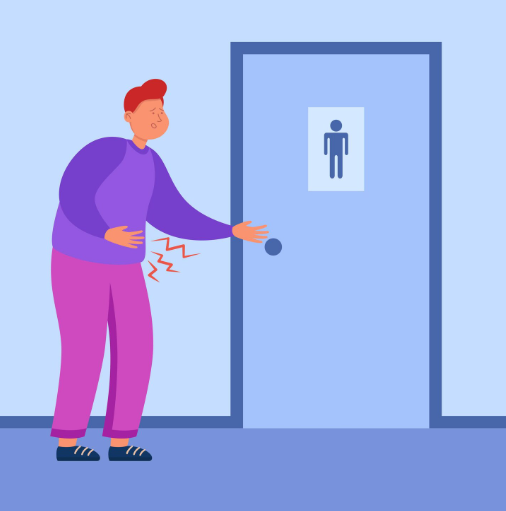1. Introduction
If you’re wondering “does Adderall cause constipation?”, you’re not alone. Though it’s a stimulant, Adderall paradoxically can lead to both loose stools and constipation in different users. Understanding why and how often is key to managing it—and ensuring comfort while on ADHD medication.
2. How Common Is Constipation on Adderall?
- Clinical data reporting:
- 2–4% experience constipation on Adderall XR.
- Diarrhea slightly more common (~5%).
- Most user experiences are mild and temporary, but some report persistent symptoms.
3. Why Does Adderall Cause Both Constipation and Diarrhea?
Mechanism Overview
- Fight-or-flight response triggers vasoconstriction, diverting blood from the GI tract → slowed gut motility, leading to constipation Healthline.
- In other cases, stimulated nervous system or timing of dose plus breakfast may accelerate digestion, leading to diarrhea or increased bowel movements SingleCareHealthline.

4. Real‑World Accounts & Experience
“Stimulants suppress your appetite for food and drink. If you aren’t drinking enough water you will be dehydrated and that causes constipation.” reddit.com
“Absent of that… you tend to poop more on Adderall since stimulates that part of your body, but it can make you gassy too.” reddit.com
These user reports illustrate how lack of hydration, combined with stimulant effects, can exacerbate constipation in some people.
5. Step-by-Step Strategies to Manage Constipation
Hydration Is Crucial
- Stimulated users often don’t feel thirsty, sweat more, and may skip fluids SingleCare.
- Aim for 2–3 liters/day, sip water consistently, consider flavored or electrolyte-enhanced water.
Balanced Fiber Intake & Timing
- Include fiber-rich foods (fruits, vegetables, whole grains) gradually.
- If diarrhea occurs, reduce insoluble fiber temporarily.
- Timing tip: eat fiber and meal when Adderall effects are low, such as before dose or later in day.
Probiotics & Magnesium
- A daily probiotic (e.g., Lactobacillus, Bifidobacterium) improved bowel regularity for many Reddit users. SingleCare
- Magnesium citrate or magnesium oxide (~100 mg twice daily) can help soften stool—but consult your provider.
Gentle Physical Activity
- Mild exercise like walking or yoga can increase gut motility naturally.

Diet Adjustments
- Favor bananas, oatmeal, prunes/prune juice, applesauce, broth. Avoid too much greasy, spicy, or caffeine-heavy foods.
- Eat smaller, frequent meals to avoid overloading digestion during peak stimulant activity.
Medical Support
- Consider stool softeners (stool lubricants or osmotic agents) if lifestyle alone isn’t enough—but only under medical advice.
- Never abruptly stop Adderall without provider consultation.
6. Comparison Table: Constipation vs Diarrhea Side Effects
| Side Effect | Approx. Incidence | Likely Mechanism | Management Tips |
|---|---|---|---|
| Constipation | 2–4% | Slowed motility, dehydration, vasoconstriction | Hydration, fiber, probiotics, magnesium |
| Diarrhea | ~5% | Overstimulated gut, dose timing, meal timing | Smaller meals, soluble fiber, timing |
7. When to Seek Medical Advice
Contact a healthcare provider if you experience:
- No bowel movement for 3+ days, despite interventions.
- Severe abdominal pain or cramping.
- Blood in stool, unexplained weight loss, fever, or vomiting.
- Signs of bowel ischemia (rare but serious): sharp pain, bloody diarrhea—go to emergency.
8. Summary & Final Thoughts
Though Adderall is a stimulant, its effects on gut motility and hydration can create a complex picture: some people experience constipation, while others see diarrhea. For constipation specifically:
- Incidence is low (2–4%), but real.
- Proper hydration, diet adjustments, and gentle lifestyle changes often help.
- Always monitor symptoms and discuss persistent issues with a clinician.












